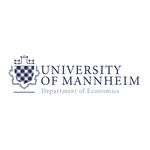“Migration Spurs Growth in Germany” – New Study by the University of Mannheim

What Germany can learn from the success story in the U.S. occupation zone after 1945
Migrants ease staff shortages
Productivity and wage levels rise
MANNHEIM, Germany–(BUSINESS WIRE)–The shortage of skilled workers is one of the biggest risks for the German economy – 1.8 million vacant jobs remained unfilled in the third quarter 2022. Immigration is an option for relief as long as access to employment is ensured. Integrating migrants into the labor market also offers the opportunity for greater economic prosperity in the long term. This is confirmed by a long-term study at the University of Mannheim. The study examines the economic impact of the arrival of refugees in the U.S. occupation zone (1945-1949). Refugees spurred the German “economic miracle” and led to higher productivity and wage levels that persist to this day.
German companies are dependent on immigration: According to the Institute for Employment Research (IAB), the German economy needs 400,000 to 500,000 immigrants in its labour market each year. The reason for this is the ageing society.
Productivity and wages rise
Migrants can help to ease this challenge if integration into the labour market is ensured, as experience after WWII in Germany shows: The long-term study from the University of Mannheim shows the positive contribution of refugees to the German “Wirtschaftswunder” and to the present day. Specifically, today, companies in the former U.S. occupation zone that integrated refugees between 1945 and 1949 have a higher turnover of 10 to 15 percent in relation to the number of employees. This is compared to near-by companies in the French occupation zone that were not allowed to take in refugees. Wages today are about 8 percent higher in companies that integrated refugees.
Migration success story
“The long-term contribution of immigration to economic prosperity is often overlooked in the current discussion,” says Dr. Ciccone, a macroeconomist at the University of Mannheim and co-author of the study. He recommends that companies build on the success story of migration in the postwar period. Networks such as “Companies Integrate Refugees”, funded by the German Federal Ministry of Economics, can help.
“Language skills are a crucial prerequisite for taking up employment,” says Ciccone. “If the language barriers are overcome, migration opens up a real win-win situation, as our research proves.”
Contacts
University of Mannheim
Department of Economics
Phone: +49 621 181-1830
E-mail: antonio.ciccone@uni-mannheim.de








